África is a woman's name
From Maputo to Casablanca, which director does not dream of one day holding up in front the media of the whole world the two most prestigious distinctions of African cinema? Awards that, every year alternately in Carthage and Ouagadougou, are a source of pride for the winner and the winner’s country, bring deep self satisfaction, can change a career and in an instant bring on a thousand hours of suffering, frustration and doubt. 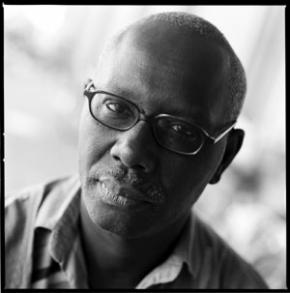 Boris Diop
Boris Diop
It is interesting to note that the symbols of this cinematographic excellence are two mythical figures of African women: the Goddess Tanit and Princess Yenenga. We would say that that is a fair return, since from the beginning – think for example of La Noire de… - African cinema has placed the question of women at the centre of concerns. The films of Med Hondo, Souleymane Cissé, Henri Duparc or Djibril Diop Mambety – among other great directors – would be difficult to understand without taking account of their preferences, manifest or latent, for their female characters. “Mère-bi”, the recent documentary, as subjective as is possible, of Ousmane William Mbaye, shows how persistent this obsession is within each artistic journey, but also from one age to another. At the same time, African women have not been content for some decades now with just being filmed, even with a measure of tenderness, by their male colleagues. They also have something to say for themselves about the world, and they make themselves heard, camera in hand. How can we explain this faint presence of women directors from our continent in the lists of winners at the Carthage Film Festival and the Pan African Festival of Film and Television of Ouagadougou?
In a bitter irony of history, it is in fact almost always the men who, at “Carthage” or “Ouaga” from time to time raise to the heavens in triumph the statuettes with women’s faces - Tanit and Yenenga… Certainly since 1972, the peerless Sarah Maldoror – from Guadalupe but also African by her militant experience, her inspiration and her choices – with “Sambizanga” returns to the highest award of the Carthage Film Festival. Twenty-two long years had to pass in the meantime, before Les silences du palais by the Tunisian female director Moufida Tlatli received the same honour. In the intervening years Safi Faye (Fad’jal) had to be content in 1980 with the Tanit in bronze. Even without being satisfactory, these results are better for African women directors than those of Fespaco. Not once in twenty-one editions has any of them been considered worthy of receiving the Etalon d’or Yenenga at the impressive closing ceremony in 4th of August Stadium. Fanta Regina Nacro of Burkina Faso came closest to that day when she received the prize for the best short film in 2001 for “Bintou” and the prize for the best script in 2005 for “La nuit de la vérité”, an ambitious and unrelenting film, at times even insupportable. Long before her, Kàddu beykat won a Special mention in 1976 for Safi Faye. However, it seems that this situation is about to change completely. The list of winners of the 21st edition of Fespaco leads us to believe that the golden age – both literally and figuratively – of African women’s cinema is approaching with giant strides. The fact that three female directors - Leila Kilani (“Our Forbidden Places”) Jihan el Tahri (“Behind the Rainbow”) e Osvalde Lewat (“Black Business”) – won all the prizes on offer at ”Ouaga” in the important section for full-length documentaries is in itself a major event. But in addition to the praise heaped on these films, along with “Awaiting for Men” by Katy Léna Ndiaye of Senegal, they were singled out for their human strength, political courage and the exceptional mastery of their directors/writers.
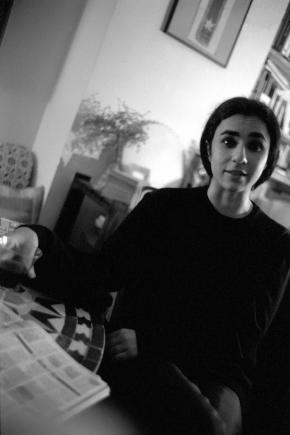 Leila Kilani
Leila Kilani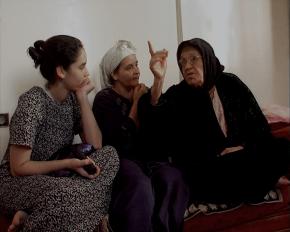 'Nos lieux interdits' by Leila KilaniThe Dockanema festival is a point of reference on matters of documentary films in Africa and we could not hope for a better opportunity than this 4th edition to highlight these talented film makers and reopen the debate on the choices they have made, sometimes at their own personal risk, of keeping close to painful subjects. Osvalde Lewat is carrying out a rigorous and well-documented pursuit of the sinister death squads, ignored by the Cameroonian state, that act against people capable of suffering who are also parents of families in (Yaoundé) Douala under the pretext of fighting serious banditry. “Behind the Rainbow” of the Egyptian Jihan el Tahri gives food for thought about the anxieties, challenges and hopes in post-apartheid South Africa. The clash between Thabo Mbeki and Jacob Zuma, which is the underlying thread, reveals, through their radically different personalities, two relationships with public action, but also a potentially explosive social situation. “Our Forbidden Places”, an extraordinary documentary by Leila Kilani, returns to the political repression in Morocco in the time of Hassan II. Three generations of Moroccans evoke a completely human story of heroism and fortitude. Belying their serenity, all the characters form a perfect picture of Morocco today –they are still frightened by memories of being “buried alive” in Tazmamart prison and of countless cries of despair that few dared even to listen to. “Our Forbidden Places” is not really a film about a particular country, but rather it echoes all human memories of torment by extreme forms of state violence, be it blind or selective.
'Nos lieux interdits' by Leila KilaniThe Dockanema festival is a point of reference on matters of documentary films in Africa and we could not hope for a better opportunity than this 4th edition to highlight these talented film makers and reopen the debate on the choices they have made, sometimes at their own personal risk, of keeping close to painful subjects. Osvalde Lewat is carrying out a rigorous and well-documented pursuit of the sinister death squads, ignored by the Cameroonian state, that act against people capable of suffering who are also parents of families in (Yaoundé) Douala under the pretext of fighting serious banditry. “Behind the Rainbow” of the Egyptian Jihan el Tahri gives food for thought about the anxieties, challenges and hopes in post-apartheid South Africa. The clash between Thabo Mbeki and Jacob Zuma, which is the underlying thread, reveals, through their radically different personalities, two relationships with public action, but also a potentially explosive social situation. “Our Forbidden Places”, an extraordinary documentary by Leila Kilani, returns to the political repression in Morocco in the time of Hassan II. Three generations of Moroccans evoke a completely human story of heroism and fortitude. Belying their serenity, all the characters form a perfect picture of Morocco today –they are still frightened by memories of being “buried alive” in Tazmamart prison and of countless cries of despair that few dared even to listen to. “Our Forbidden Places” is not really a film about a particular country, but rather it echoes all human memories of torment by extreme forms of state violence, be it blind or selective.
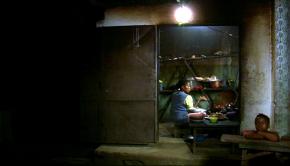 'Une affair dès negres' by Osvalde Lewat
'Une affair dès negres' by Osvalde Lewat 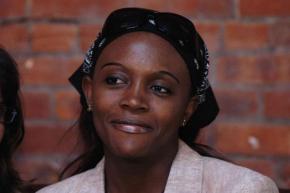 Osvalde Lewat What is most moving, however, in each of these female directors is the quality of vision and an aesthetic treatment that elevates the purpose above anything that we have yet seen in African cinema. Safi Faye – whom we should always remember as the “mother” of African cinema south of the Sahara – became known above all for her precise documentaries that we could discretely call meditative. The new generation of female directors have done more than renew this tradition. Far from being forlorn and somewhat insipid templates, they have chosen to speak of the tears and the faults of individuals and societies. In a very paradoxical way, it is by sketching the golden side and fiction’s strategies of evasion that the production of such documentaries can give the power of imagination to real events, well restored and explored in depth. More than just a process of maturation, it is a revolution in the Seventh Art in Africa of which we must speak.
Osvalde Lewat What is most moving, however, in each of these female directors is the quality of vision and an aesthetic treatment that elevates the purpose above anything that we have yet seen in African cinema. Safi Faye – whom we should always remember as the “mother” of African cinema south of the Sahara – became known above all for her precise documentaries that we could discretely call meditative. The new generation of female directors have done more than renew this tradition. Far from being forlorn and somewhat insipid templates, they have chosen to speak of the tears and the faults of individuals and societies. In a very paradoxical way, it is by sketching the golden side and fiction’s strategies of evasion that the production of such documentaries can give the power of imagination to real events, well restored and explored in depth. More than just a process of maturation, it is a revolution in the Seventh Art in Africa of which we must speak.
published in catalogue Dockanema’s 4th edition (Documentary Film Festival - Maputo) - Setembro 2009